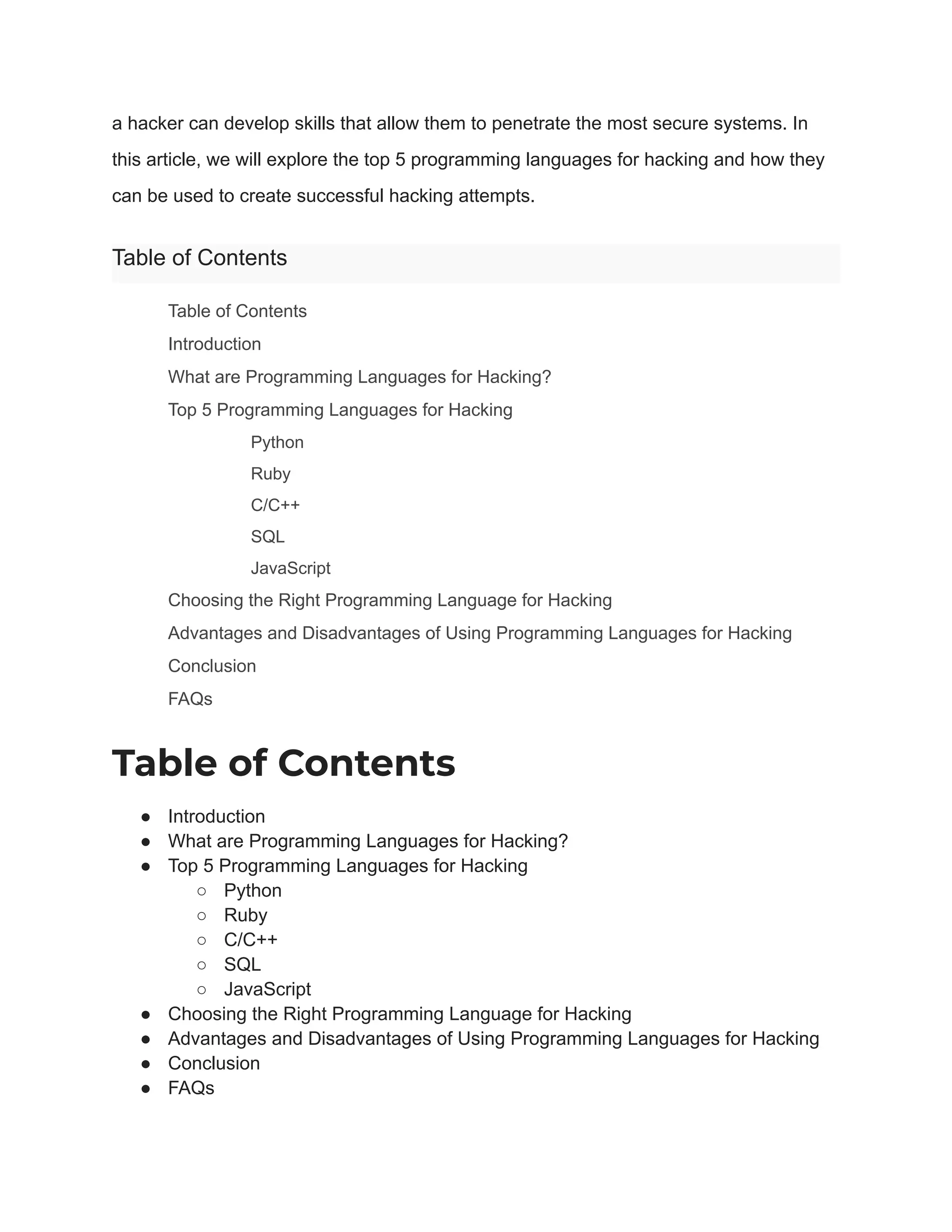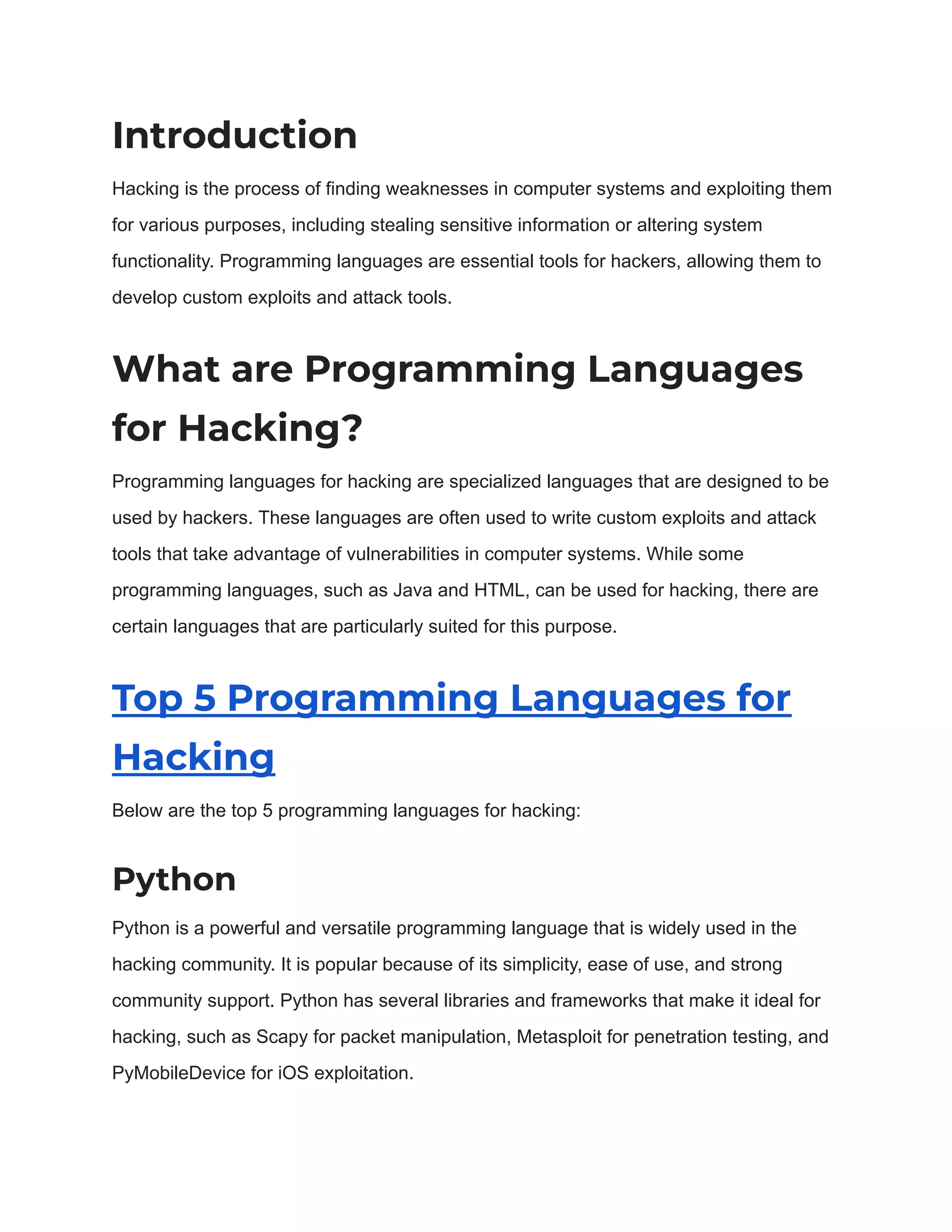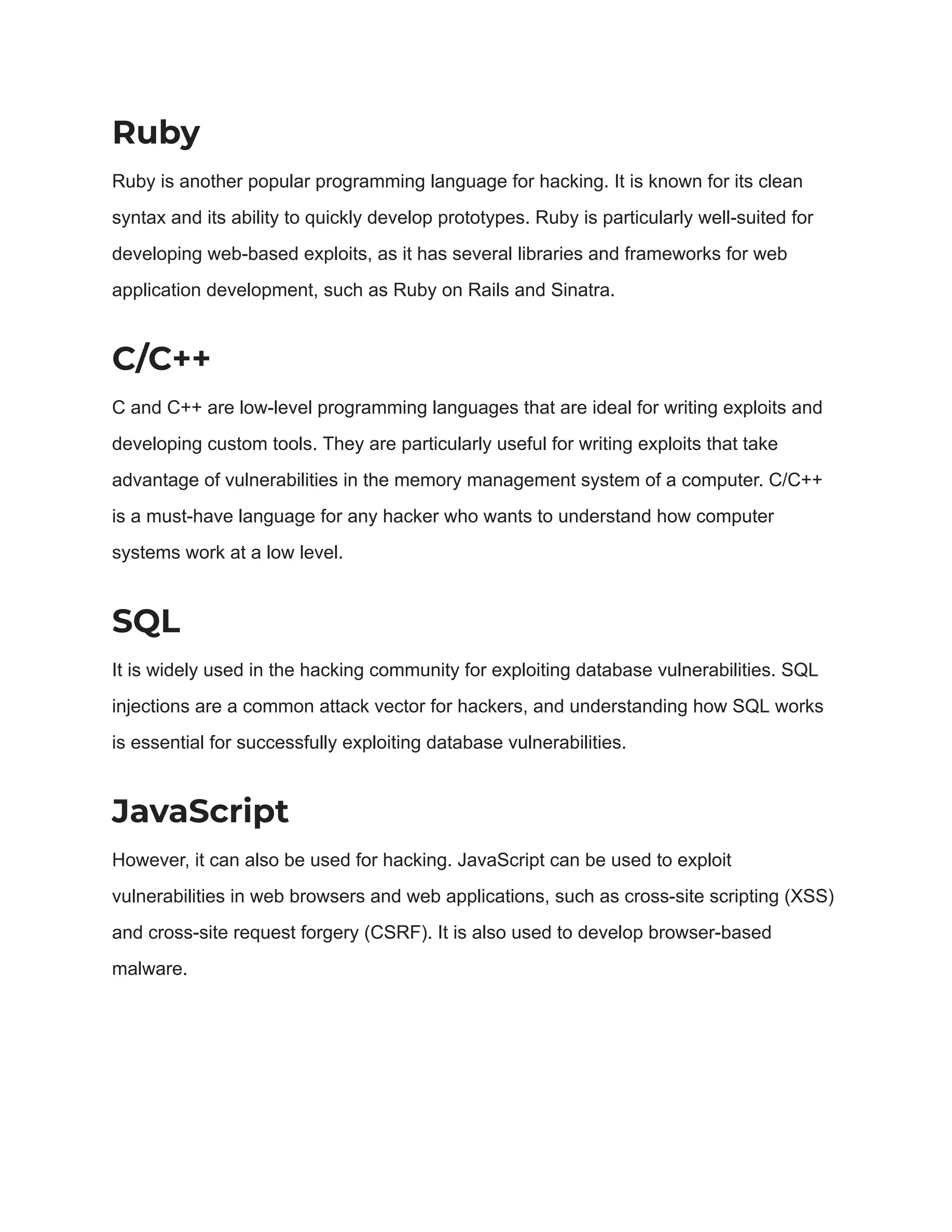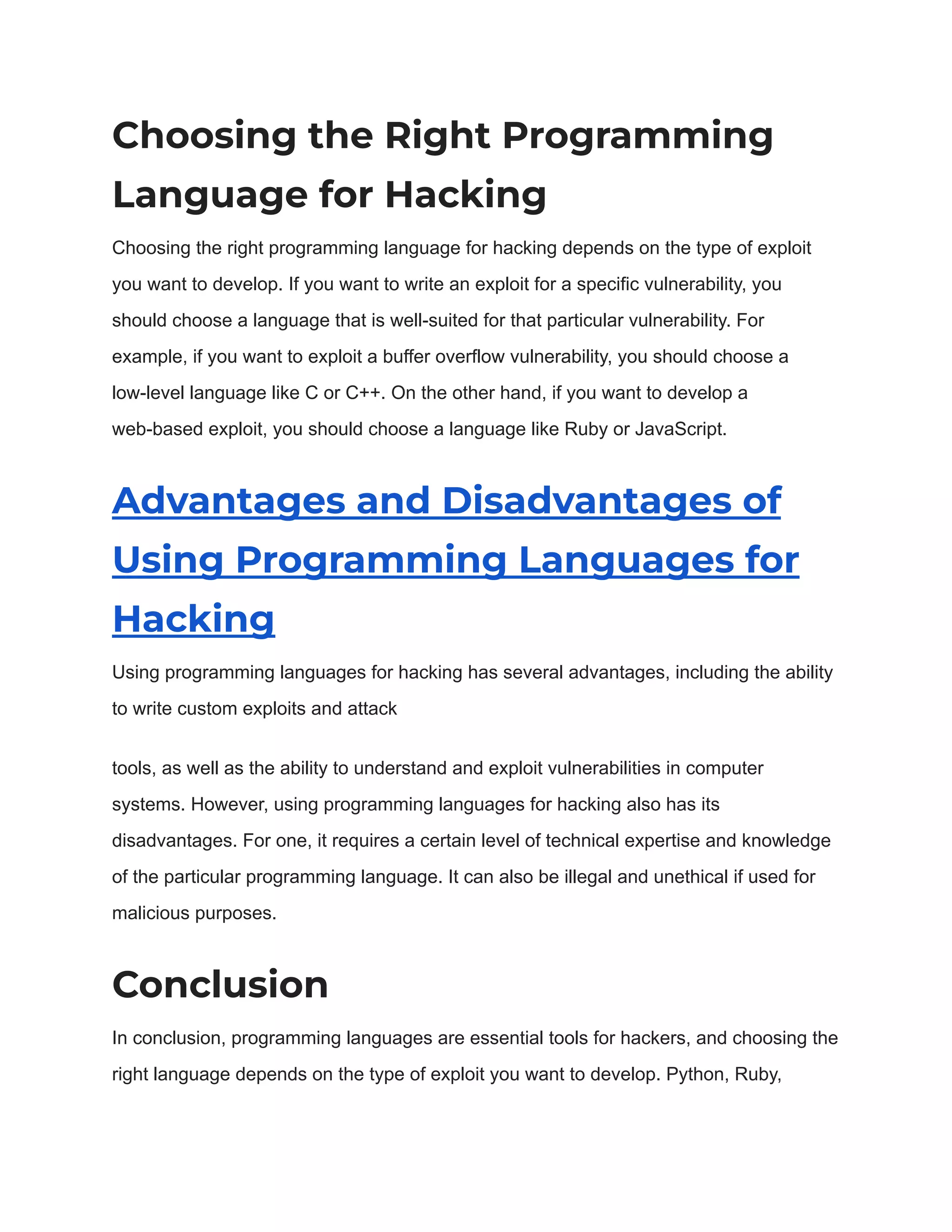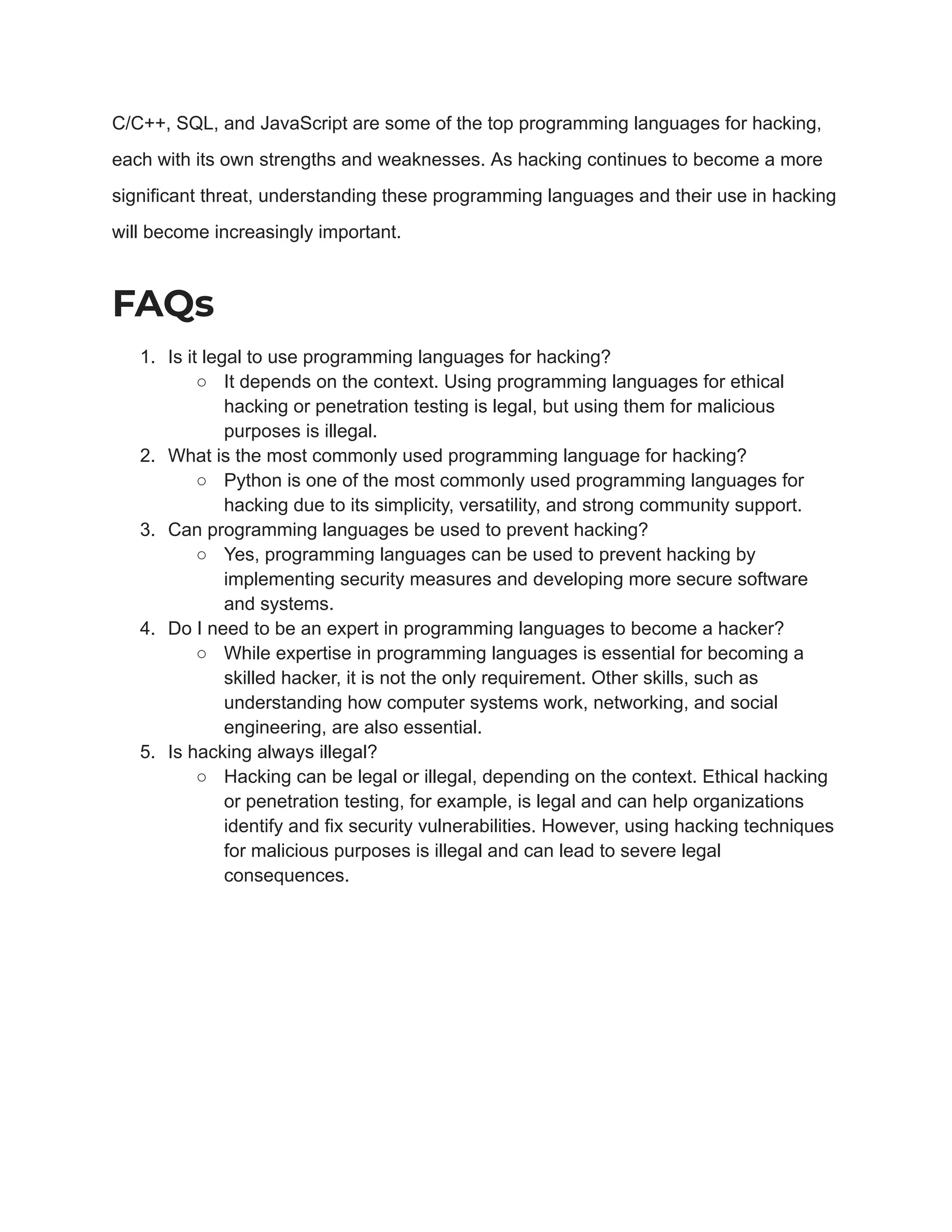The document discusses the top five programming languages for hacking: Python, Ruby, C/C++, SQL, and JavaScript, highlighting their strengths and appropriate use cases. It emphasizes the importance of choosing the right language based on the type of exploit and mentions the advantages and disadvantages of utilizing programming languages for hacking, including ethical considerations. Additionally, the document addresses FAQs regarding the legality of hacking, the most commonly used languages, and necessary skills for becoming a hacker.

